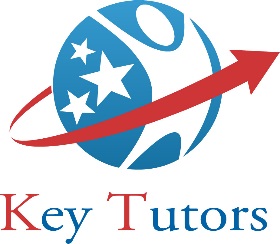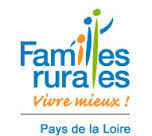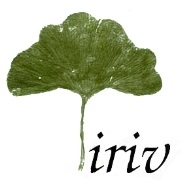Key Tutors- former des tuteurs aux compétences clés - 2015-2017


- Scope
- Objectives
- Results
- Experimentation
- European networks
- French networks
- Publications & Presentations
Introduction
The Key Tutors project (2015-2017) is an Erasmus+ project (selection 2015). It offers both a pedagogical tool & training for tutors in the field of Key competences. Professionals are mainly social workers but also trainers/tutors in variours fields of activities. Whatever their educative and/or professional background, they are not trained to support learners from disadvantaged backgrounds/with fewer opportunities – a relevant social and educative support is needed. The main issue of the Key Tutors is to design a tool to identify and assess key competences among learners with fever opportunities.
Social economy gathers diverse profiles of professionals working in associations, foundations, mutual insurance companies and cooperatives. As far as associations are concerned, 2 million professionals work with 16 million volunteers in France in 2015. Their professional career usually combines voluntary and paid work. More than 40% are qualified workers (at least BAC +2 according to a study published in 2015) but other professionals may have passed professional diploma or qualification (such as the BAFA or BAFD). The Key Tutors project addresses two publics: Professionals working with leaners with fewer opportunities in associations , local authorities and Small and Medium Entreprises (SME) and learners from disadvantaged backgrounds/with fewer opportunities.
I. Scope
The 8 Key competences are the European Framework adopted by the European Commission & Parliament in 2006 in order to enhance the competence approach in Europe. It takes into account 4 basice competences. France combines KC1 – communication in the mother tongue and KC6- social and civic competence. Spain combines KC 2 – communication in a foreign language and KC8- cultural awareness and expression. Lithuania combines KC3- Mathematical competence and basic competences in science and technology and KC 5- Learning to learn. Finland combines KC4- digital competences and KC7- sense of initiative and entrepreneurship. Poland combines KC1- communication in the mother tongue and KC5- Learning to learn.
II. Objectives
The Key Tutor project aims to promote the development, testing and implementation of innovative practice in the field of education for adult in implementing an education guidance for professionals (trainers and tutors in enterprise) working in the field of "Education for all" in order for them to develop basic and transversal skills among adult learners from disadvantaged background (basic and transversal skills, people in integration, long-term unemployed, people with disabilities, migrants ...).
The Key Tutors project addresses the following priorities : To promote the development, testing and implementation of innovation practices in the field of education, training and youth ; To facilitate the recognition, and validation of knowledge, skills and competences acquired through formal, non-formal and informal learning ; and 3- To support learners with special needs (disadvantaged backgrounds) to complete education cycles and facilitate their transition into the labour market.
III. Results
- Intellectual Output 1- 2015-2016- Designing a tool and method to identify and assess the competences of learners workers with special status in their transition on the labour market ;
This tool will be experimented among tutors in each of the 5 countries. All the feedback will be validated during the transnational training session to be held in Finland in May 2016 - Intellectual output 2- 2016-2017- Designing an education guidance to support professional working with learners from disadvantaged backgrounds/with fewer opportunities;
This guidance will be experimented among the target groups (trainers, tutors and low qualified learners) in each of the 5 countries. All the feedback will be validated during the transnational session to be held in Poland in May 2017.
For further information on the project: http://www.iriv-vaeb.net/ and http://www.keytutors.eu/
IV. Experimentation
the expetimenation is to be held in each of the 5 countries following the agenda:
- in 2016- training sessions amonf tutors/trainers and learners to test the IO1
- in 2017- training sessions amonf tutors/trainers and learners to test the IO2
From January to July 2017, the European team has been working on the Intellectual Ouput 2- a guidance for trainers & tutors to support learners with less opportunities in their transition to the labour market or a training. A transnational seminar held in Warsaw (POland) in May 2017 validated the methodological approach & the final framework of the e-book available online in August 2017.
The designing & testing of the Intellectual outpu 1 (IO1) was implemented from January to December 2016. For France, iriv conseil has been testing it from March to December 2016 thanks to its monthly club at the Cité des Métiers. A transnational seminar held in May 2016 at the University of Jyvaskyla (Finland) valiated the final framework.
The last EU meeting gathered the European team in Valladolid (Spain) in June 2017. The previous EU meeting was held in Vilnius (Lithuania) in June 2016. The kick off meeting of the project took place in Angers (Maine et Loire) in October 2015 with an official reception organised at the City hall offered by two deputy mayors, in charge of Tourim and International relations.
V. European networks
 |
Partner |  Poland |
|
 |
Project leader |  France |
|
 |
Partner |  Spain |
|
 |
Coordinator |  France |
http://www.iriv.net |
 |
Partner |  Lituanie |
|
 |
Partner |  Finland |
VI. French networks
the French networks gathered are:
- associations belonging to the Federation Familles ruales in the region Pays de Loire
- training bodies and associations belonging to the network of the Cité des Métiers in Ile de France and mainly Paris and around
VII. Publications & Presentations
← Back


















